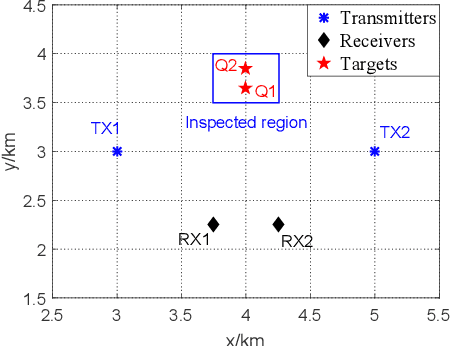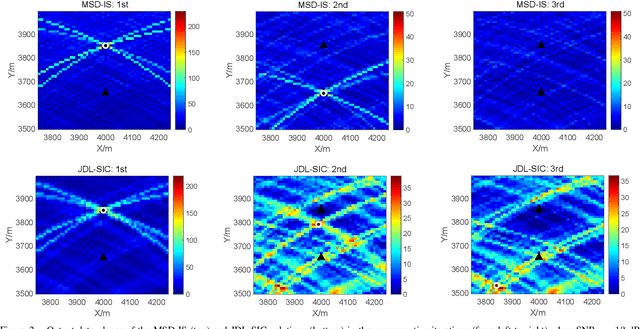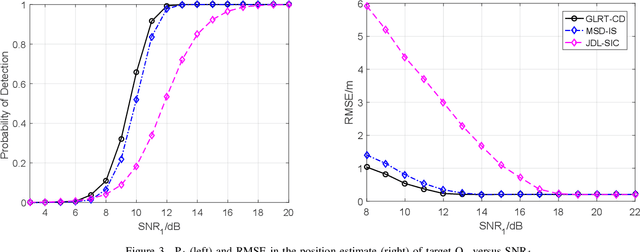Subspace-Based Detection and Localization in Distributed MIMO Radars
Paper and Code
May 18, 2022


In this paper, we consider a distributed multiple-input multiple-output (MIMO) radar which radiates waveforms with non-ideal cross- and auto-correlation functions and derive a novel subspace-based procedure to detect and localize multiple prospective targets. The proposed solution solves a sequence of composite binary hypothesis testing problems by resorting to the generalized information criterion (GIC); in particular, at each step, it aims to detect and localize one additional target, upon removing the interference caused by the previously-detected targets. An illustrative example is provided.
* Accepted for presentation at 2022 IEEE Sensor Array and Multichannel
Signal Processing Workshop (SAM 2022)
 Add to Chrome
Add to Chrome Add to Firefox
Add to Firefox Add to Edge
Add to Edge